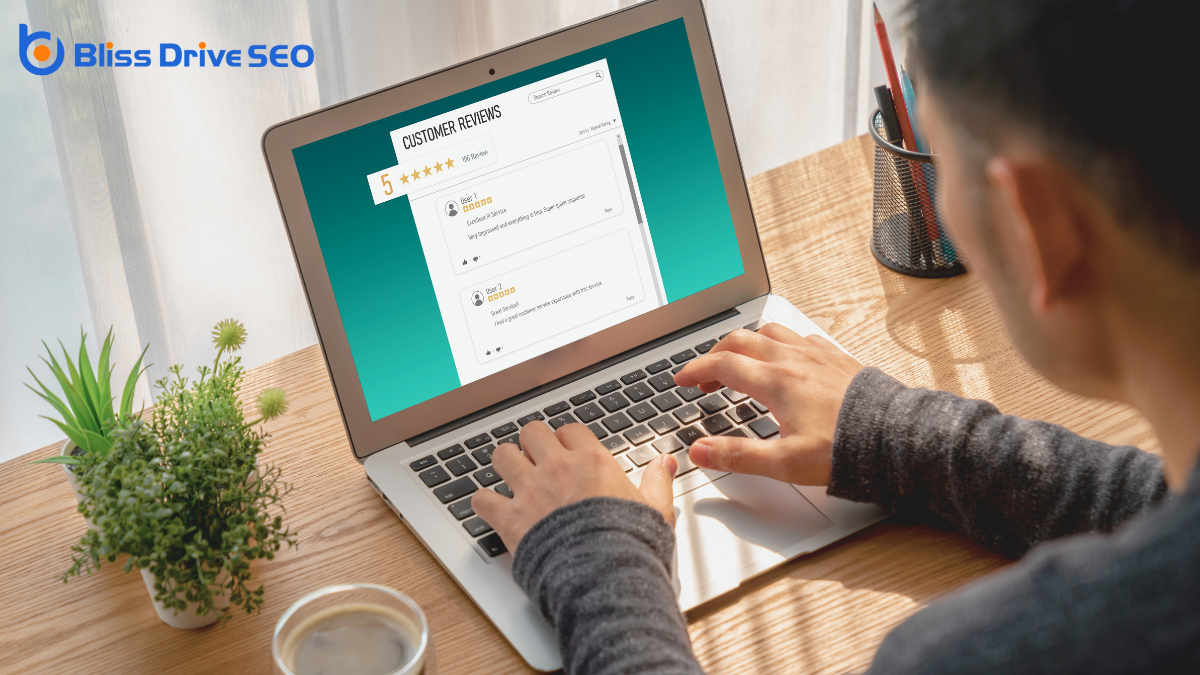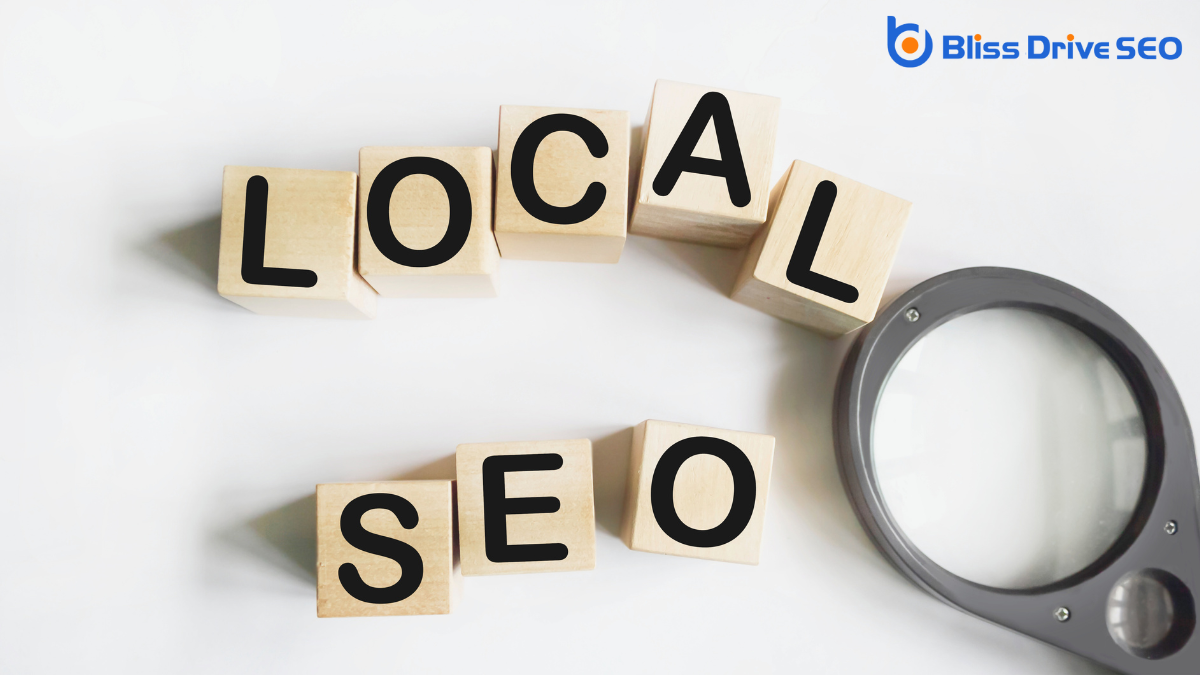Digital Marketing Services
Learn More About Us

To enhance your local SEOOptimization strategies aimed at improving a website’s visibility in local search results., begin by optimizing your Google My Business profile with thorough, precise information and captivating photos. Utilize local keywordsWords or phrases that users type into search engines to find information. to customize your content and address community needs. Confirm your website is mobile-responsive and has a user-friendly layout. Elevate your online visibility by creating local citations and upholding uniformity in your name, address, and phone number. Prompt customer reviews to improve your reputation and credibility. Utilize social media to interact with local audiences and distribute location-specific content. Concentrating on these tactics will provide you with a better grasp of how to distinguish yourself in local search results.
In the world of local SEO, optimizing your Google My Business (GMB)A tool for businesses to manage their online presence across Google, including Search and Maps. profile is essential for visibility and engagementThe interactions that users have with a brand’s content on social media.. First, verify that your business information is complete and accurate. This includes your business name, address, phone number, and website. Consistency here is critical, as discrepancies can confuse potential customers and search engines alike.
Next, focus on selecting the appropriate business categories. Choose primary and secondary categories that best describe what your business offers. This helps Google associate your profile with relevant search queries.
Don't forget to add high-quality photos. Photos attract attention and can showcase your products, services, or the ambiance of your establishment. They give potential customers a visual sense of what to expect.
Encourage your customers to leave reviews. Responding to reviews, whether positive or negative, shows that you value customer feedbackInformation provided by customers about their experience with a product or service, used to improve ... and are willing to engage. This interaction can improve your online reputation and elevate your ranking.

To effectively target local keywords, start by discovering local keyword trends that are relevant to your business area.
Use geo-specific phrases that incorporate your city's name or neighborhood to improve your visibility in local searches.
Tapping into local keyword trends can greatly enhance your local search rankingsThe position at which a website appears in the SERP. and drive more targeted traffic to your business. By identifying what your community is searching for, you can tailor your content to meet their needs and increase your visibility.
Start by exploring keyword researchThe process of finding and analyzing search terms that people enter into search engines. tools like Google TrendsA tool to analyze the popularity of search queries over time. or SEMrush to see what's trending in your area. These tools provide insights into search volume and competition levels, helping you pinpoint the terms most relevant to your audience.
Pay attention to seasonal trends or events specific to your location. For instance, if there's a popular festival or sporting event nearby, incorporate related keywords into your content. This approach guarantees you're staying relevant and capitalizing on timely opportunities.
Don't forget to analyze your competitors. Look at the keywords they're ranking for and consider how you can differentiate your content to stand out. You can use tools like Ahrefs or Moz to gather this data.
When you're aiming to boost your local SEO, using geo-specific phrases is a powerful strategy. These phrases help search engines connect your business with your local area, making it easier for potential customers nearby to find you.
To start, think about what words someone in your area might use to search for your services. If you run a bakery in Austin, Texas, phrases like "Austin bakery" or "best cupcakes in Austin" should be your focus.
Incorporate these keywords naturally throughout your website, including in titles, headings, and meta descriptions. But remember, it's important to maintain a conversational tone.
Overloading your content with keywords can harm readability and might even result in penalties from search engines. Instead, aim for a balance where the keywords fit naturally within your content.
Don't forget about other areas where geo-specific phrases can shine, like blog content or FAQs. Regularly updating your site with locally relevant content keeps it fresh and valuable to both users and search engines.
Plus, consider using local landmarks or neighborhood names to further enhance your relevance. By strategically using geo-specific phrases, you're setting up your business for local search success.
To boost your local search rankings, focus on building local citations with accurate business listings. Make sure your NAP (Name, Address, Phone number) information is consistent across all platforms.
Submit your details to local directories to enhance your visibility and credibility in the area.
Accurate business listings are vital for enhancing your visibility in local search results. When potential customers search for services like yours, they rely on local directories and search engines to find precise information. It's important to verify your business details—such as your name, address, phone number, and website—are correct and up-to-date across all platforms. Inaccurate or incomplete listings can confuse customers and impact your rankings negatively.
To build strong local citations, start by identifying major directories and platforms like Google My Business, Yelp, and the Yellow Pages. Make sure your business information is accurately listed on each.
Don't stop there; explore local nicheA specific segment of the market targeted by affiliates to promote products or services. directories relevant to your industry. This not only boosts your local SEO but also increases your chances of being found by the right audience.
It's also a good idea to encourage satisfied customers to leave reviews on these platforms. Positive reviews can enhance your credibility and attract more local traffic. Remember, the more consistently accurate your business information is across the web, the more search engines will trust your business. This trust translates into better visibility and more opportunities to connect with local customers.
Consistency in your business's name, address, and phone number (NAP) across all online platforms is a cornerstone of successful local SEO. Search engines favor businesses with uniform NAP information because it indicates reliability and professionalism. When your NAP details match on platforms like Google My Business, Yelp, and your website, it enhances your visibility in local search results.
Start by ensuring every instance of your business's NAP is identical. Even minor discrepancies, like abbreviating "Street" to "St." in some places but not others, can confuse search engines and potential customers. Create a master document with the exact NAP format you want to use and stick to it religiously.
You should routinely audit your online presence to catch any inconsistencies. Use tools designed for tracking your NAP across the web, but also manually check popular platforms. This diligence helps maintain your business's credibility and trustworthiness.
Lastly, encourage customer reviews where your NAP is visible. Positive reviews linked to consistent NAP data further boost your local SEO efforts, making it easier for new customers to find and choose your business over competitors.
Submitting your business to local directories is an essential way to build local citations and enhance your SEO. These directories, like Yelp, Yellow Pages, and local Chamber of Commerce sites, help boost your visibility in search results. When your business is consistently listed across multiple directories, search engines like Google recognize you as a credible and trustworthy source, improving your local rankings.
Start by identifying relevant directories in your area. Focus on those that have a solid reputation and are frequently visited by your target audience. Don't just stop at the popular ones; seek out niche directories that cater specifically to your industry or location.
It's vital to provide accurate and consistent information across all platforms—this includes your business name, address, and phone number (NAP).
Consider crafting a compelling description of your business to pique interest. Highlight your services, unique selling points, and any special offers. Adding high-quality images and customer reviews can also enhance your listings.
Keep your directory profiles updated, responding to reviews promptly. This proactive approach helps maintain your business's reputation and encourages positive engagement. By effectively utilizing local directory submissions, you'll see tangible improvements in your local search visibility.

When it comes to boosting your local SEO, encouraging customer reviews is a strategy you can't afford to overlook. Reviews not only build trust with potential customers but also signal search engines that your business is active and relevant. People often rely on reviews to make informed decisions, so having a solid number of positive reviews can set you apart from competitors.
To get more reviews, start by making it easy for customers to leave them. After a purchase or service, send a follow-up email with a direct link to your review page on platforms like Google or Yelp. You could also display signs in your store or on receipts, gently reminding customers to share their experiences.
Responding to reviews—both positive and negative—is equally important. It shows you value feedback and are committed to improving. A simple "Thank you" or addressing a concern can make a big difference.
Lastly, never fake reviews. Authenticity is key, and search engines can penalize businesses for fake feedback. Genuine customer experiences are invaluable, so focus on delivering excellent service that naturally inspires reviews. This approach will enhance your local SEO and help your business thrive.
While gathering customer reviews enhances your local SEO, guaranteeing your website is optimized for mobile users is equally essential. Most people use their phones to search for local businesses, so you want your site to be user-friendly on mobile devices. Start by checking if your website is responsive. A responsive design adjusts seamlessly to different screen sizes, providing an ideal viewing experience.
Next, focus on loading speed. Mobile users expect fast results, and a site that takes too long to load can frustrate potential customers and hurt your rankings. Use tools to test your site's speed and identify areas for improvement, like compressing images and minifying code.
Also, make navigation intuitive. Simplify menus and buttons so users can easily find what they're looking for without zooming in or getting lost. Guarantee contact information and critical details are front and center.
Lastly, don't forget about local SEO elements specific to mobile users, like click-to-call buttons and map integrations. These features make it easy for users to connect with you directly from their devices. By optimizing for mobile, you enhance user experience and boost your local search rankings.
To leverage social media effectively, engage with local audiences by responding to comments and messages promptly.
Share location-based content that resonates with your community, like local events or storiesA feature on platforms like Instagram and Facebook where users can post photos and videos that disap..., to boost your visibility.
Social media platforms offerThe specific product or service being promoted by affiliates. numerous opportunities for engaging with local audiences and boosting your local SEO. By actively participating in local conversations, you can build a strong community presence.
Start by joining local groups or forums on platforms like FacebookA social networking site where users can post comments, share photographs, and links to news or othe... or Reddit. Engage in discussions relevant to your business and offer helpful insights. This interaction not only establishes your authority but also fosters relationships with potential customers.
You should also consider hosting live events or Q&A sessions on platforms like InstagramA photo and video-sharing social networking service owned by Facebook. or Facebook. This provides a personal touch and encourages local users to interact with you directly. Make sure to respond promptly to comments and messages to show you're approachable and attentive.
Collaborating with local influencersIndividuals with the power to affect the purchasing decisions of others due to their authority, know... can further enhance your reach. Find influencers who resonate with your brand and audience, and partner with them for promotions or events. Their local following can expand your visibility and bring more traffic to your business.
Sharing location-based content is a powerful strategy to boost your local SEO through social media. By focusing on content that's relevant to your specific area, you can improve your visibility and attract more local customers. Start by highlighting local landmarks, events, or even your favorite spots in town. This not only makes your content more relatable but also helps search engines associate your brand with the local area.
Use platforms like Instagram, Facebook, and TwitterA microblogging and social networking service where users post and interact with messages known as "... to share photos, stories, and updates that showcase your connection to the community. Tag your location in posts and use local hashtagsWords or phrases preceded by a hash sign (#), used on social media to identify messages on a specifi... to increase your reach. For instance, if you're a coffee shop in Seattle, use hashtags like #SeattleCoffee or #SeattleEats to engage with local audiences looking for recommendations.
Encourage your followers to tag your business when they visit and share their own experiences. This user-generated content can be a goldmine for reaching new customers. Always respond to comments and engage with users to build a strong, local community around your brand.

Crafting effective location pages can greatly enhance your local search visibility. Start by creating a unique page for each location your business serves. This allows you to tailor content specifically to each area, helping search engines understand where you operate. Make sure each location page includes essential details like your business address, phone number, and operating hours. Consistency is essential, so verify this information matches your listings on Google My Business and other directories.
Incorporating local keywords naturally into your content can boost your page's relevance. Mention nearby landmarks, neighborhoods, or other local identifiers that people might use in their searches. Adding a map to your location page not only helps users find you but also signals to search engines that your business has a physical presence.
Don't overlook the power of customer testimonialsPositive statements from customers about their experiences with a product or service, used to build ... or reviews specific to each location. They add credibility and can persuade potential customers. Use high-quality images of your storefront, team, or local events to make each page more engaging.
To maximize your website's visibility in local search results, optimizing your content is essential. Start by including relevant local keywords throughout your website. Think about how your potential customers search for services like yours. Use city or neighborhood names naturally in your text to guarantee search engines connect your business to the local area.
Next, create high-quality, engaging content that addresses the needs and interests of your local audience. Write blog posts, articles, or guides that provide valuable information specific to your community. This not only helps with SEO but also positions you as a knowledgeable local expert.
Make sure your website's metadata, such as title tags and meta descriptions, includes local keywords. These are critical for search engines to understand the content's relevance to local queries.
Also, focus on having a clear and user-friendly website structure. Ensure your website is easy to navigate, with clear headings and concise, informative content. This enhances user experience, encouraging visitors to stay longer and explore more, which positively impacts search rankings.
While optimizing your website content is crucial, acquiring quality backlinksLinks from other websites pointing to your website, crucial for SEO. is equally vital for boosting your local search rankings. Backlinks act like votes of confidence from other websites, informing search engines like Google that your content is trustworthy and relevant. But how do you go about obtaining these valuable links?

Effectively monitoring your local SEO performance is crucial for understanding how well your strategies are working and identifying areas for improvement. You can't just set up your SEO efforts and forget about them. Regularly checking performance metricsKey indicators used to measure the effectiveness of affiliate marketing efforts, such as clicks, con... helps you see what's effective and what needs tweaking. Start by tracking key metrics like local search rankings, organic trafficVisitors who come to a website through unpaid search engine results., and conversionThe completion of a desired action by a referred user, such as making a purchase or filling out a fo... rates. These numbers will give you a clear view of your current performance.
Use tools like Google AnalyticsA web analytics service offered by Google that tracks and reports website traffic. and Google Search ConsoleA tool by Google that helps monitor and maintain your site's presence in search results. to gain insights into how users find you and interact with your site. These tools provide valuable data on search queries, click-through rates, and bounce rates, helping you understand user behavior.
Local SEO toolsSoftware and online tools used for various aspects of SEO, such as keyword research and link buildin... like Moz Local and BrightLocal can offer specific insights into local search performance, showing how you rank in local map packs or directories.
Also, don't overlook customer reviews. They directly impact your local search rankings. Keep an eye on review sitesWebsites that publish reviews of products or services, often including affiliate links to earn commi... and engage with your audience by responding to feedback. Consistently monitoring your local SEO performance guarantees you stay ahead of the competition and make data-driven decisions that enhance your presence in local search results.
To boost your local SEO, focus on optimizing your Google My Business profile and targeting local keywords. Build local citations and encourage customer reviews to enhance your online presence. Make sure your website is mobile-friendly and create location-specific pages to attract local traffic. Optimize your website content and aim to acquire quality backlinks for better credibility. Finally, regularly monitor your local SEO performance to guarantee ongoing improvements and adapt your strategy as needed. Stay proactive, and you'll see results!
